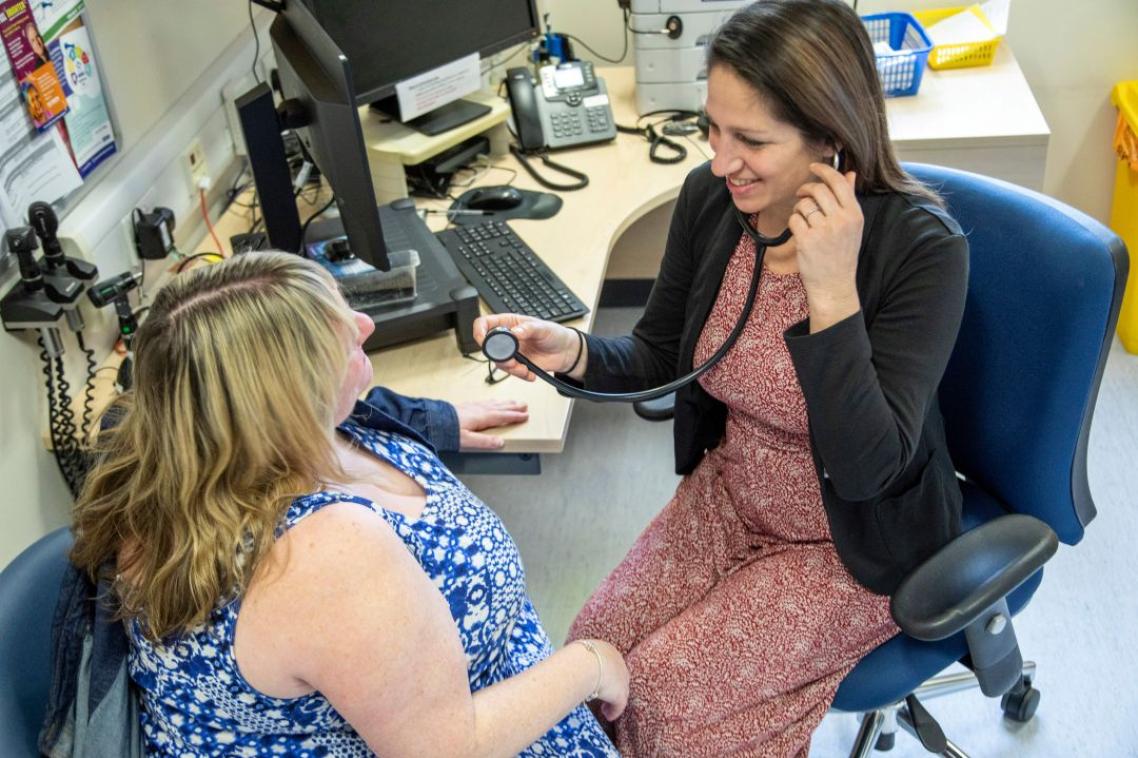Urgent review needed on vaccines during pregnancy
University of Queensland researchers are calling for an urgent review of low influenza vaccination rates for pregnant women and whooping cough vaccinations for young and Aboriginal and/or Torres Strait Islander mothers-to-be.
The figures were revealed by researchers from the multi-jurisdictional Links2HealthierBubs study, who analysed the largest observational cohort of mothers with babies born in Queensland, Western Australia and the Northern Territory from 2012-2017.
Lead UQ School of Public Health investigator Dr Lisa McHugh said researchers looked at vaccination rates for almost 600,000 pregnant women.
“Only 15 per cent of the group received the influenza vaccine overall, while 27 per cent were vaccinated against whooping cough,” Dr McHugh said.
“And just 12 per cent received both.”
Whooping cough vaccinations in Aboriginal and/or Torres Strait Islander pregnancies were 20 per cent lower than non-Indigenous pregnancies, with a similarly lower uptake of the ‘flu vaccine.
“We also found pregnant women younger than 20 years of age were less likely to receive vaccines,” Dr McHugh said.
“These results are concerning, especially since we have a potentially bad influenza season this year.”
Influenza vaccines have been recommended, and free, for pregnant women in Australia for decades, as they protect both mothers and newborn babies from severe infection, and whooping cough vaccines were introduced in 2015 to protect babies under 6 months of age.
Dr McHugh said the likelihood of women receiving both vaccines during pregnancy increased if they attended antenatal care in the first trimester.
“Australia’s whooping cough vaccine in pregnancy program has been a key driver of influenza vaccine uptake in pregnancy - except among First Nations women,” she said.
“First Nations mothers were more likely to have had an influenza vaccine in pregnancy before the antenatal whooping cough vaccine program, but showed a declining trend following the introduction of whooping cough vaccine
“Women who are less likely to be receiving the flu vaccine in pregnancy need information about its importance early in pregnancy, so they are equipped with the knowledge to make that choice.
“Offering the flu vaccine from a trusted health care provider is a key factor to increasing that uptake.
“An urgent updated review of these data and vaccination strategies is needed before the next influenza pandemic or whooping cough outbreak occurs.”
This paper is published in The Australian and New Zealand Journal of Obstetrics and Gynaecology Journal (DOI: 10.1111/ajo.13548).
Media: Dr Lisa McHugh, l.mchugh@uq.edu.au, UQ Medicine Communications, med.media@uq.edu.au, +61 (0)7 3365 5118, +61 (0) 436 368 746.
Topics
Related articles

A better way to assess cardiovascular health

Vaping cannabis linked to teen depression and anxiety
Media contact
UQ Communications
communications@uq.edu.au
+61 429 056 139
